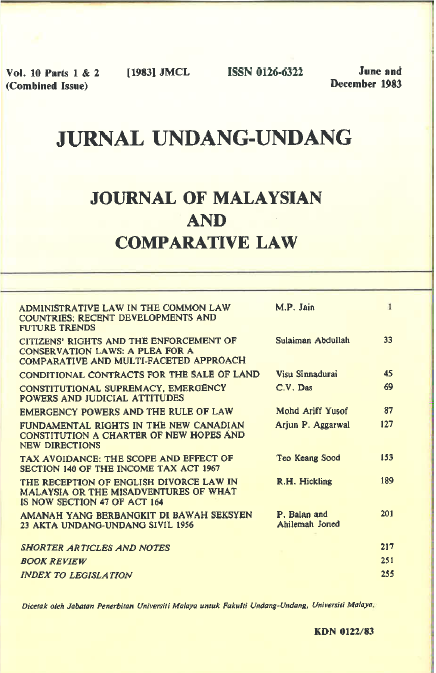Fundamental Rights in the New Canadian Constitution
A Charter of New Hopes and New Directions
Keywords:
British North America Act 1886, Charter of Rights and Freedoms, Canadian Parliament, Human rights, Western World, Fundamental Freedoms, Democratic Rights, Mobility Rights, Legal Rights, Equality Rights for all Individuals, Official Languages of Canada, Minority Languages Education Rights, Canada's Multicultural Heritage, Native People's Rights, Reasonable limit prescribed by lawAbstract
On April 17, 1982, after long delay and struggle, Canada, finally proclaimed the Charter of Rights and Freedoms and guaranteed to its citizens basic fundamental rights by enshrining them into its new Constitution. Thereby, Canada joined the league of progressively democratic nations who have guaranteed the basic human rights of man in their Constitution. In view of diversity of culture and languages, as well as the protectionist attitude over provincial rights in Canada, the enshrining of fundamental rights in the Constitution was a monumental task. The desire of the Canadian leaders to follow the Canadian tradition and constitutional conventions of obtaining the unanimity of the provinces as well as to meet the requirements of the British North America Act 1886 had further delayed the passage of the Charter of Rights and Freedoms by the Canadian Parliament.
Downloads









